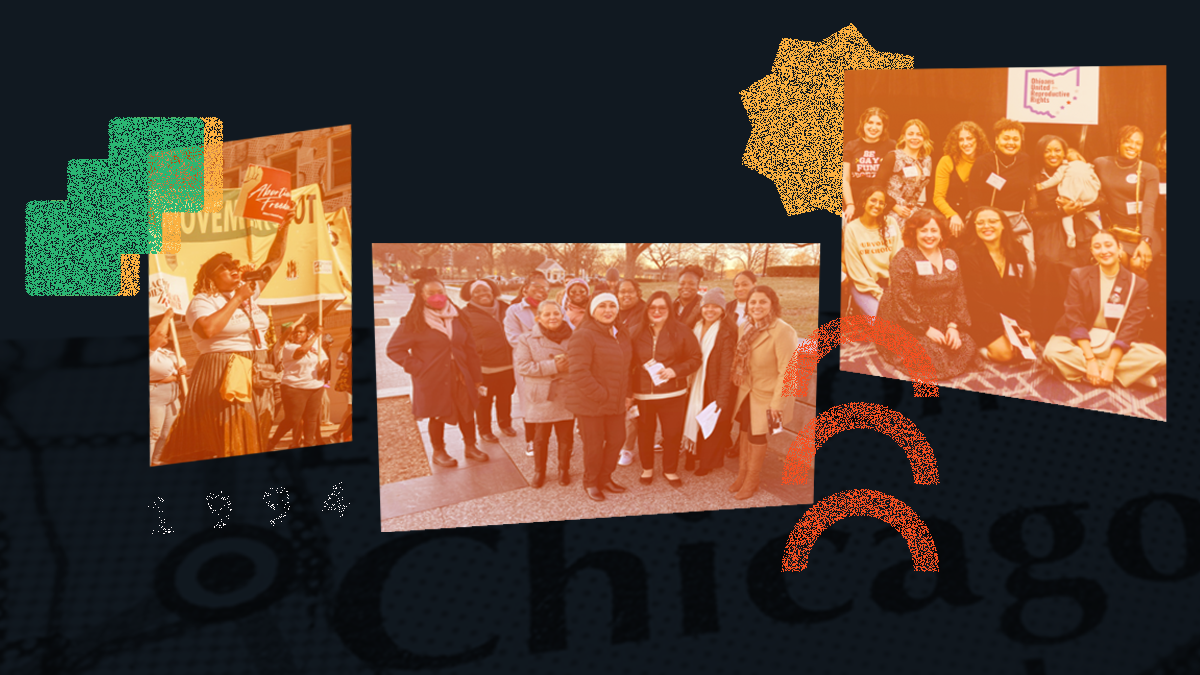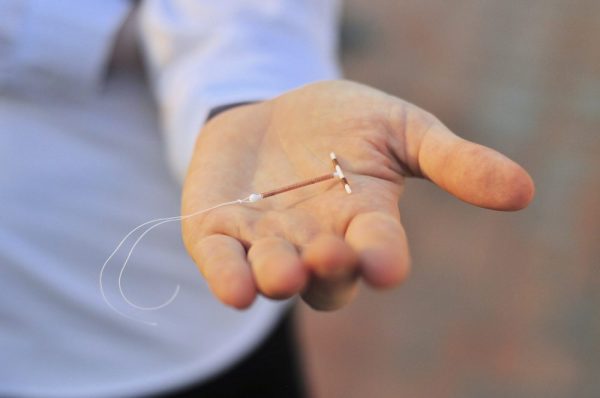Black Women Built That: Byllye Avery & Khiara M. Bridges
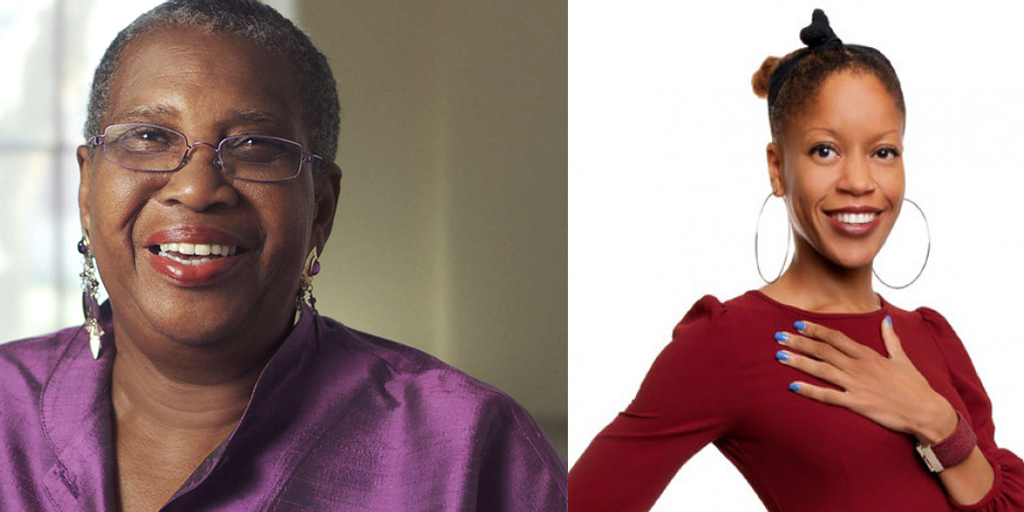
In honor of Black History Month, “Black Women Built That” is a series celebrating Black women leaders who have shaped our social, political and cultural life. Without their contributions, our country would be unrecognizable.
In closing the “Black Women Built That” blog series, I celebrate the Black women who have lead the fight (often without credit) to bring access to quality and comprehensive reproductive health care.
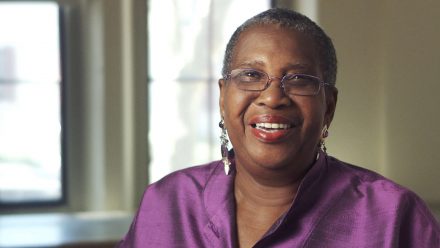 Byllye Avery– women’s health pioneer and lifelong activist
Byllye Avery– women’s health pioneer and lifelong activist
Byllye Avery began her career in education serving the needs of special needs children in Jacksonville, Florida. After being diagnosed and battling through an autoimmune disease and losing her husband to a heart attack in his 30’s, Avery realized the lack of interest and commitment to bringing quality health care and health education to the Black community was systemic. She began to zero in on the plight of the community and all of the stressors that affected mental and physical health within the black population-including race and socio-economic status. Through her own experience, she was able to recognize the double impact of her intersectional identity and decided to take matters into her own hands.
In 1974, Byllye Avery, Joan Edelson, Judy Levy and Margaret Parrish opened the Gainesville Women’s Health Center (GWHC) as a response to the outrageous lack of access to abortion and other reproductive health needs that low-income black women faced in northern Florida. Before the inception of the GWHC, activists like Avery participated in a legal abortion referral service known as the Abortion Information Dissemination Service (a student organization at University of Florida). Through this service, those seeking to terminate a pregnancy were given a number of a clinic in New York that performed abortions, but were told they had to find their own way there and back. Avery credits the cost and travel barriers she observed in the referral program as the catalyst of the GWHC.
The GWHC mission statement was to: “help women solve the crisis-producing situation of unplanned, unwanted pregnancy,” at an affordable price for low-income and minority residents. In addition to abortion services, the health center also provided services tailored to black women, such as sickle cell anemia testing and other preventive health measures. When asked about the GWHC Avery said, “about 50% of clients who came in for abortions were Black, but not very many Black women used the well woman/GYN clinic. And that’s why I wanted to find out more about Black women’s health and what were we doing, and how our lives were being shaped.” As a response to this notion, the health center staff began to produce Sage-Femme, a newsletter published with the intent of informing and educating women on the topic of women’s health as well as training women on what quality health care should look like.
Through the success of the GWHC, Avery was inspired to launch the National Black Women’s Health Project, now known as the Black Women’s Health Imperative, in 1984 in Atlanta, Georgia. The importance of the name change signifies the ongoing work that is quite literally ‘imperative’ for the continued health and well-being of black women in this country.
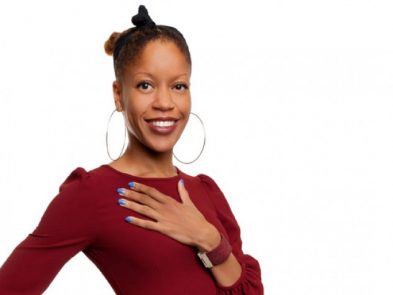 Khiara M. Bridges – black feminist anthropologist and educator specializing in the intersectionality of race, reproductive justice, and law
Khiara M. Bridges – black feminist anthropologist and educator specializing in the intersectionality of race, reproductive justice, and law
Khiara Bridges, a long-time activist since her days at Spelman College, has done deep and meaningful work of studying the impact that race and ethnic identity have on health care outcomes. Bridges created and completed an eighteen month ethnological field study in a large New York City public hospital, following the journeys of four women enrolled in the Prenatal Care Assistance Program. This program serves uninsured/underinsured pregnant individuals, including undocumented immigrants. In her book, Reproducing Race: An Ethnography of Pregnancy as a Site of Racialization, she argues that an individual’s race affects the standard of prenatal care received and ultimately alters the experience of hospital childbirth. She delves into the topics of eugenics, stratified reproduction and the racialization of disease. Bridges has concluded from her research that racial stereotypes have an influence on the medical professionals administering care and those biases often impact the quality of care received.
In addition to being a life-long advocate of women’s reproductive rights, Bridges is also a classically trained Ballerina. When she is not busy teaching as an Associate Professor of Anthropology at Boston University School of Law or working on writing her next book, she is performing with Ballet Inc. As a former ballerina currently working in the Repro world, I find her ability to balance both of her passions quite admirable and as she put it, “it’s a crazy existence and the only one I know.”
At a time when the reproductive rights movement is being portrayed to be dominated by white women in pussy hats, I just want to be clear: BLACK WOMEN BUILT THAT (TOO). So. A HUGE thank you to both Byllye Avery and Khiara Bridges for doing the incredibly important work of making sure Black women’s needs remain at the center of the reproductive justice movement.


